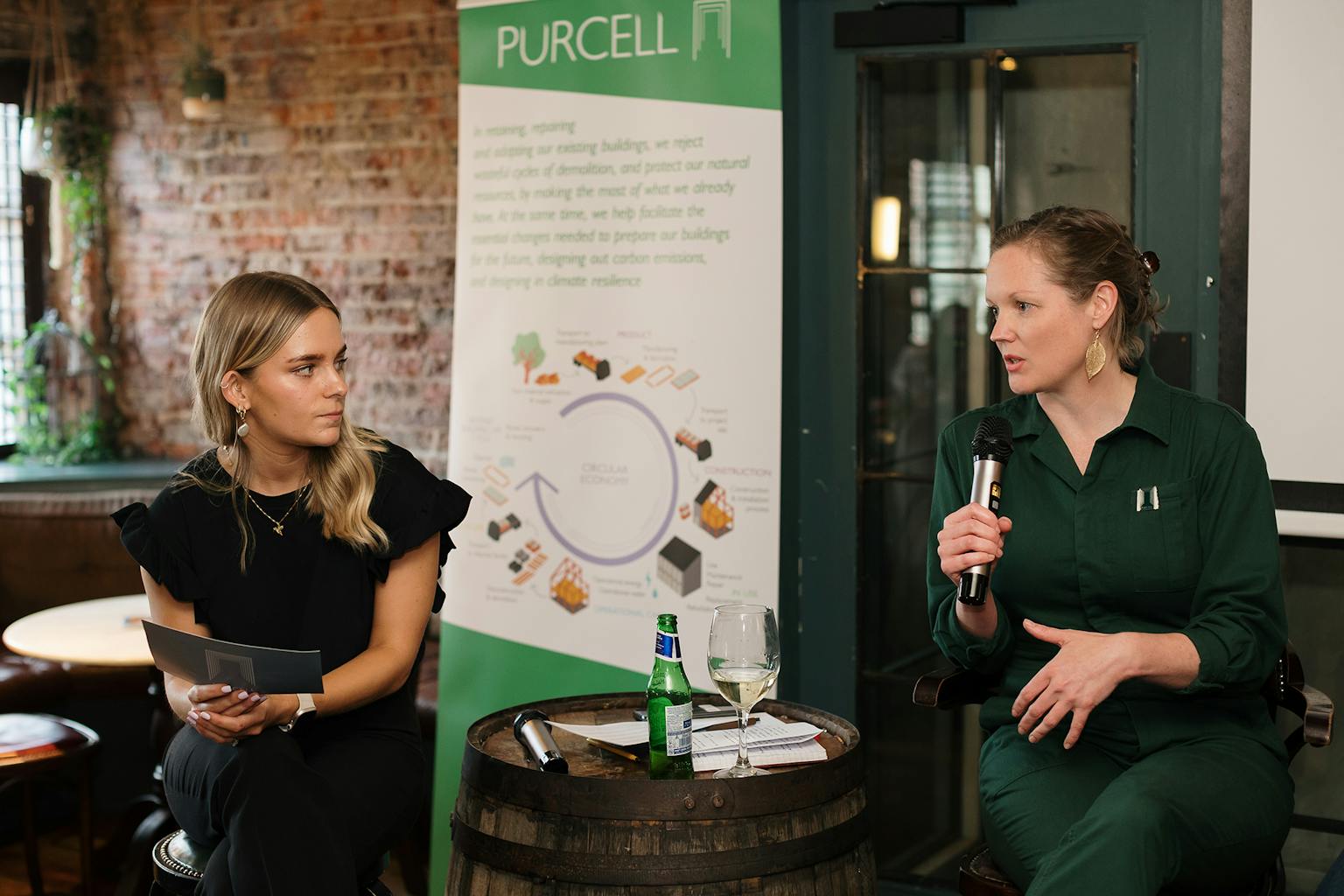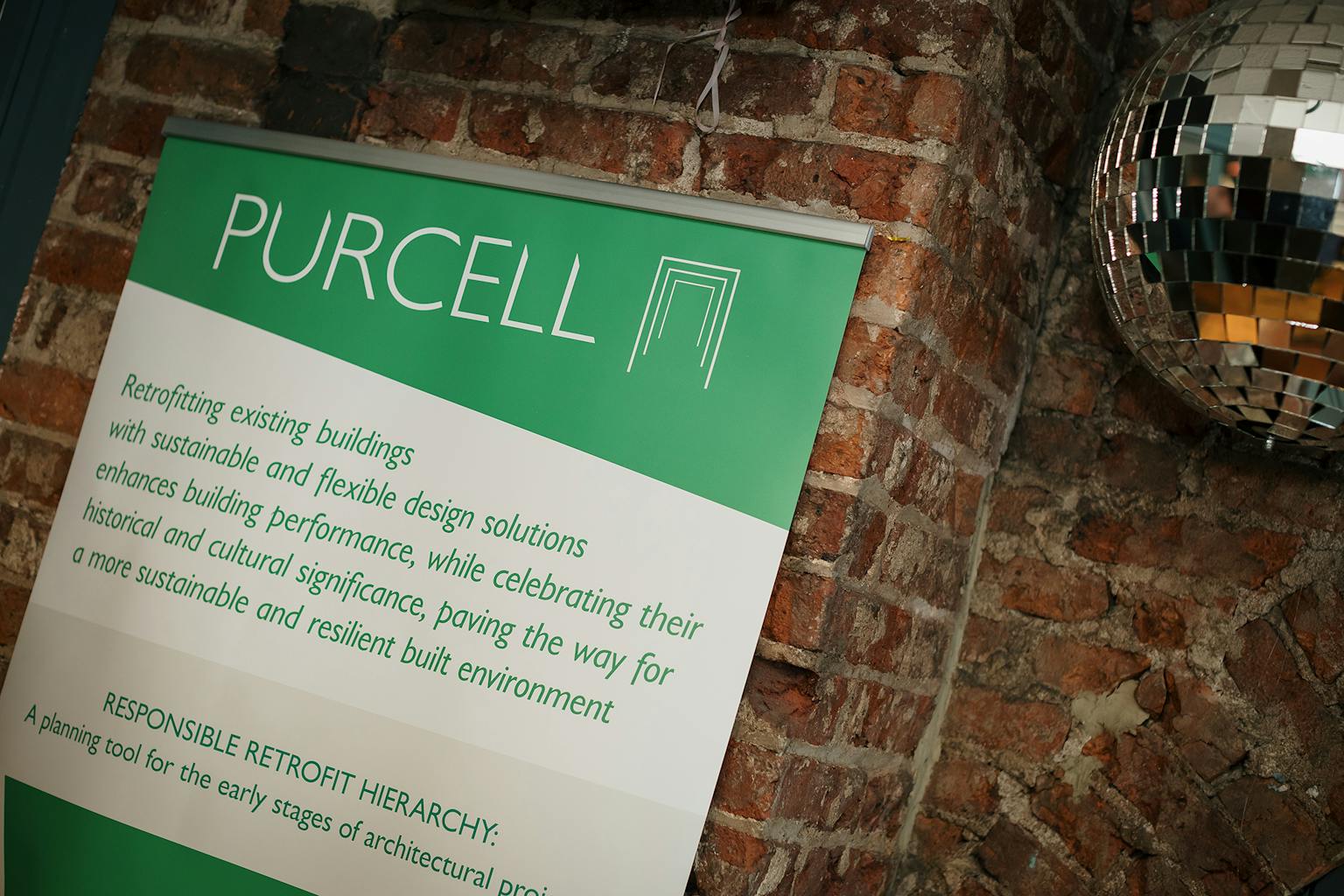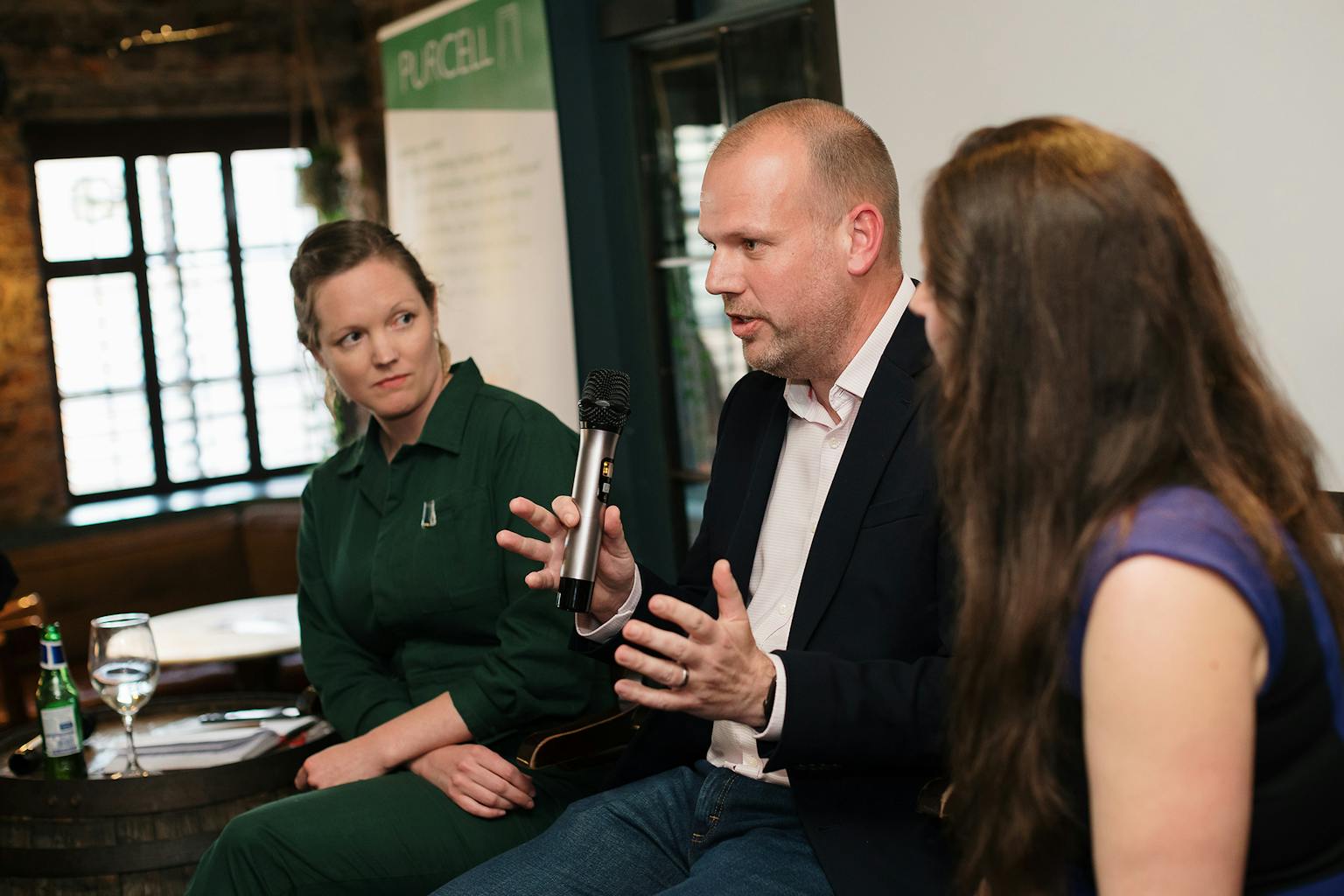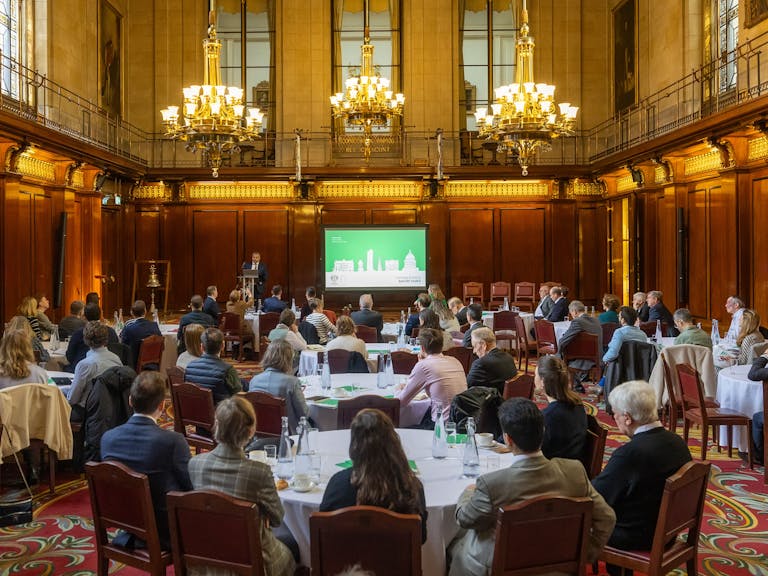Event: Grade III Listing debate at UKREiiF

Purcell’s Laura Baron and Lorna Crane were joined by Civic Engineers’ James Bruceand TGA Consulting’s David Warwick for an engaging discussion on the pros and cons of a Grade III listing during this year’s UKREiiF.
The call for a Grade III listing has recently made headlines in both the architectural and national press: could safeguarding the 25 million structures currently unprotected from demolition in the UK help reduce carbon emissions and help solve the UK’s housing crisis?
Or, as critics argue, would a Grade III listing stifle socioeconomic development, and further exacerbate the UK's housing shortage and reduce the potential for introduction of green spaces?
The debate proved to be a contentious one for our panel, who concluded that although the conversation was a valuable step in the right direction,a ‘one size fits all’ approach to our existing building stock was not the best solution.
One of the most thought-provoking points of discussion stemmed from the conflation and confusion of heritage and sustainability. Preventing demolition for the benefit of the planet is not a new idea, and whilst heritage has a role to play in this, the terminology used within the proposal - its associations with the listing system and connotations of heritage significance – elicited a sense of reservation from much of the audience.
Contrastingly, the concept of heritage and ‘heritage assets’ was placed under a lens, with the panel and the audience questioning why ‘heritage’ shouldn’t extend to material or carbon value, and asking whether we should in fact apply the ways in which we value, protect, and maintain our historic fabric to our carbon intense and materially significant built fabric.
My point is, that the debate around the demolition of M&S on Oxford Street is not as black and white as ‘stay the same’ versus ‘demolish and rebuild’, or ‘old’ versus ‘new’ […] it is time we think differently about our built environment and consider the value of the materials contained within it.
— Laura Baron, Purcell Head of Sustainability

An entirely different approach to planning in the context of existing building stock was also considered: should we be assessing the significance of an existing building in terms of its environmental impact, and use this information to inform proposals and planning applications in a comparable way to heritage assessments, in turn preventing the demolition of materially significant buildings?
The debate around the shortcomings of our existing planning system continued with panelist and Purcell Senior Architect Lorna Crane stating that, while she opposed demolition, we need fewer restrictions placed upon listed buildings, rather than the application of additional limits, to encourage more creative reuse of listed buildings.
Whilst most agreed that the proposal was well intentioned, our panel concluded that the creation of a Grade III listing category would ultimately confuse the existing grade listing system, and that further discussions into the reform of planning policy and how we deal with our existing building stock is needed – watch this space for our next panel!







